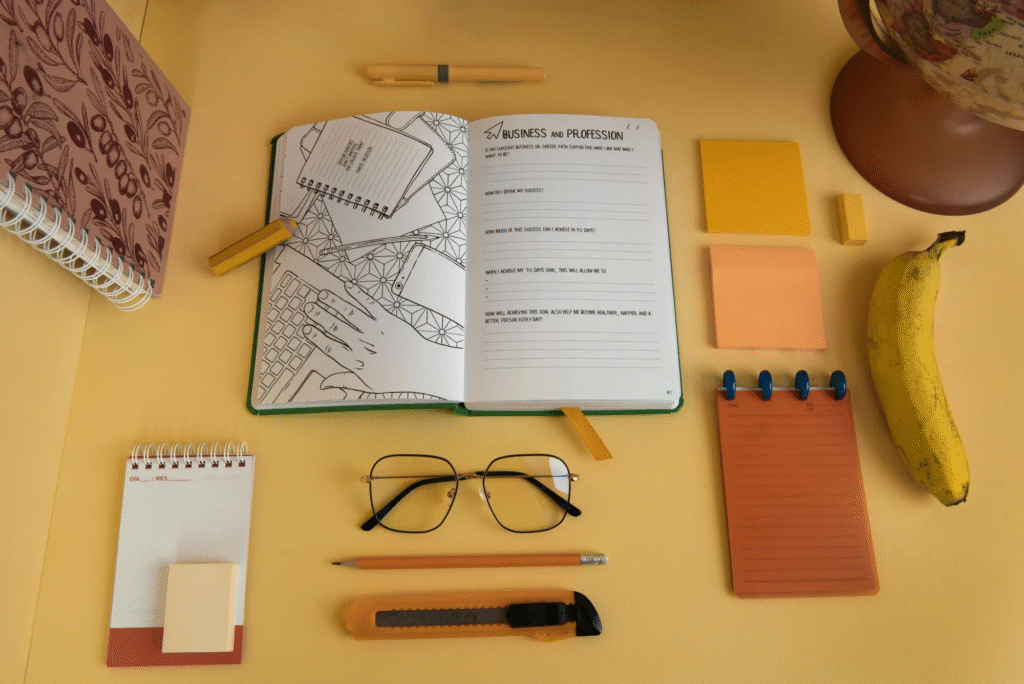Do you feel overwhelmed by the constant demands of modern life? It’s easy for stress and anxiety to take hold. One of the most powerful, yet simplest, tools for emotional regulation is journaling. Integrating journal prompts for mental health into your daily routine offers a structured way to process feelings, track progress, and foster self-awareness. Journaling is not just about recording events.
It is a proactive step toward nurturing your mind daily. It provides a non-judgmental space for emotional exploration. This article gives you actionable steps and prompts. You can start building a healthier, more resilient mindset today.
The Power of Journaling for Emotional Wellness
Journaling is a proven therapeutic technique. It moves abstract worries from your mind to the page. This physical act creates distance from the emotion. This distance allows for objective observation. Studies show that regular journaling can significantly reduce stress symptoms. It improves overall emotional well-being.
This is a crucial component of consistent self-care. It helps you recognize patterns in your thinking. Identifying these patterns is the first step toward positive change. You start understanding your triggers better. This deep understanding is essential for managing your reactions.
You May Read This: How to Cheer Up a Depressed Cat and Make Them Happy Again
Starting Your Daily Journaling Habit
Getting started can feel daunting. You do not need expensive notebooks or perfect handwriting. The goal is consistency, not perfection. Try to dedicate 10–15 minutes each day. Choose a quiet time. Early morning or before bed works well for most. Do not filter your thoughts.

Write exactly what comes to mind. If you feel stuck, use a prompt. Prompts act as gentle starting points. They guide you past that initial blank page anxiety. Always remember that this is a private conversation. There is no right or wrong way to write here.
Key Journal Prompts for Anxiety and Stress Relief
Anxiety often thrives in silence. Writing about your worries diminishes their power. Use these targeted journal prompts for mental health to confront feelings of stress and fear:
- The Brain Dump: List everything causing you stress right now. Do not organize or edit the list.
- Worry Challenge: Write down one specific worry. What is the evidence that it is true? What is the evidence against it?
- The “What If”: Complete this sentence: “I am most afraid that…” Now, write a realistic plan for handling that outcome.
- Future Self Letter: Write a letter to your future self one week from now. What are you advising yourself to focus on today?
- Body Scan: Where do you feel this anxiety in your body? Describe the physical sensation in detail.
Journal Prompts for Cultivating Gratitude and Joy
Focusing solely on problems can be draining. Journaling should also lift your spirits. Intentionally shifting your focus to positive things boosts happiness. These prompts rewire your brain toward optimism:
- Three Good Things: List three things that went well today, no matter how small. Why did they go well?
- Simple Pleasures: Describe a scent, sound, or sight you enjoyed today. Use all five senses.
- Who Lifted You? Name a person who made your life better recently. Write down why their presence is valuable.
- Accomplishment Review: What is one small goal you completed today or this week? Acknowledge your effort.
- Gratitude Inventory: What essential things do you often take for granted? (e.g., clean water, comfortable shoes).
Deepening Self-Awareness: Prompts for Emotional Clarity
Self-awareness is the bedrock of strong mental health. It allows you to understand your core values and needs. Use these journal prompts for mental health to dig deeper into your inner life:
- Core Values: What three values are most important to you? Are your actions aligning with them?
- Emotional Check-In: Beyond “fine,” how are you truly feeling right now? Use three different descriptive words.
- Energy Audit: What activities leave you feeling energized? Which activities consistently deplete your energy?
- Boundary Reflection: Where did you need to say “no” this week but said “yes” instead? How did that choice make you feel?
- Lesson Learned: What is the most important lesson you have learned about yourself in the past month?
Making Journaling a Sustainable Practice
The biggest challenge is maintaining consistency. Do not let missed days become a reason to quit. If you skip a day, simply start again the next day. Keep your journal and pen visible. Make it easy to grab and use. Consider different mediums like voice notes or typing if writing feels too slow. Review your entries periodically.
Reading past entries shows you how far you have come. It highlights your strength and resilience. These moments of reflection reinforce the positive habit. They prove that using Journal prompts for mental health truly helps. Committing to this practice is an investment. It is an investment in your long-term peace and stability.
Start small today. Pick just one prompt that resonates with you. Write for five minutes. You are nurturing your mind with every word. This small, consistent action builds massive results over time. Your mind deserves this attention.
Frequently Asked Questions (FAQs)
- Q: How often should I use journal prompts for mental health?
A: Aim for 10–15 minutes daily. Consistency is more important than length. Choose a time that works best for your routine, such as morning or evening.
- Q: Is there a “right” way to journal?
A: No. Journaling is a personal, non-judgmental space. Write freely without worrying about grammar, spelling, or perfect handwriting. The goal is honest self-expression.
- Q: What if I feel stuck or don’t know what to write?
A: Use a prompt to get started. Prompts provide a focused question that guides you past the initial blank page anxiety and directs your thoughts.
- Q: How does journaling actually help with anxiety and stress?
A: It moves abstract worries from your mind to the page, creating distance from the emotion. This allows you to observe, process, and confront your feelings objectively.
- Q: Do I need a special notebook or expensive supplies?
A: Not at all. All you need is a pen and paper or a digital note-taking tool. The most important tool is your willingness to start writing.



